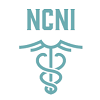Treatment for Radiculopathy in LA
Radiculopathy refers to several diseases that occur in the spinal nerve roots. In simple terms, it’s when there is a pinched nerve in your spine. The condition develops when surrounding cartilage and bones undergo change due to injury or wear and tear.
These changes often put pressure on the nerve roots causing numbness, pain, inflammation, and weakness. Timely treatment is needed to keep the symptoms under control.
People with rheumatoid arthritis, obesity, and osteoarthritis are at a greater risk of developing Radiculopathy. Other factors include spinal abnormalities, repetitive movements, and poor posture. The condition is also hereditary and is known to affect pregnant women.
Symptoms for the disease range from mild to severe and are of three main types:
- Lumbar Radiculopathy:When there is pressure on the nerve roots of the lower back. It causes sciatica, hip pain and can also lead to sexual dysfunction, paralysis, and incontinence.
- Cervical Radiculopathy:Develops due to pressure on the nerve roots found in the neck. It causes weakness, tingling, or burning and can lead to loss of feeling in the arm, neck, finger, or hand.
- Thoracic Radiculopathy:Occurs when a nerve is pinched in the upper back region of the spine. This leads to pain in the torso and chest and is often mistaken for shingles.
Radiculopathy is caused by nerve compression or a herniated spinal disc which develops when the disc’s outer rim begins to weaken or tear. The inner part exerts pressure outwards on the closest spinal nerve.
Bones spurs are another cause of Radiculopathy. Trauma and osteoarthritis are responsible for the emergence of bone spurs which stiffen the spine and cause compression.
Ways to treat Radiculopathy include limiting physical activity and using a brace, soft neck collar, or splint on the affected area. Medications that prove helpful include muscle relaxants, analgesics, anti-inflammatory drugs, prescription opioids, and spinal corticosteroid injections. If the patient’s condition doesn’t improve, doctors may resort to surgery.
Dr. Farzin Pedouim is a board certified neurologist based in Huntington Beach and Los Angeles. He utilizes modern tools and practices to help patients find relief from pain and experience improved mobility.
